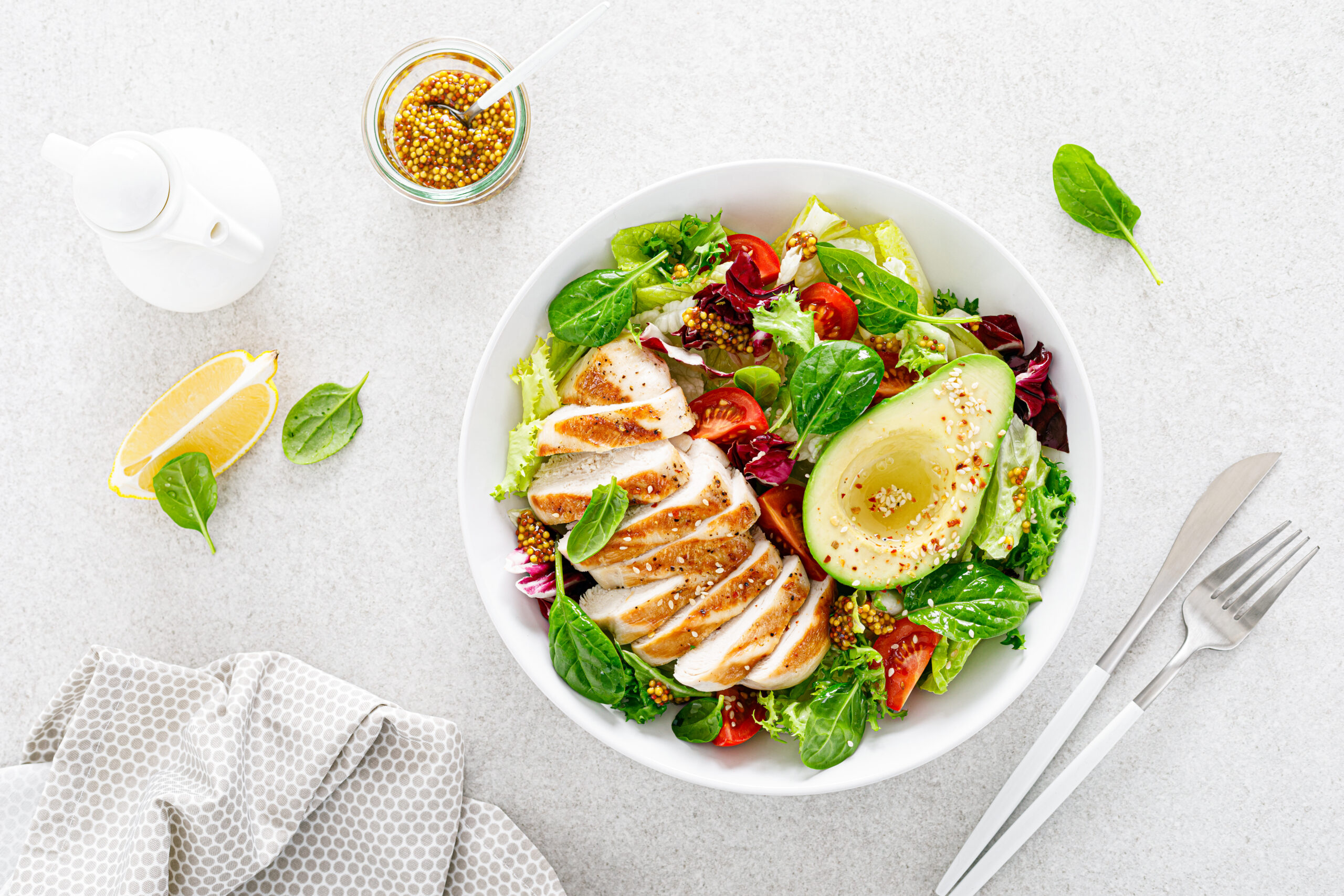As the vibrant hues of spring blossom around us, it presents an excellent opportunity to reflect on our habits and recommit to promoting health and sustainability. Amidst our busy schedules, the decisions we make regarding food have far-reaching effects on our well-being and the health of our planet.
At American Dining Creations, we emphasize that fostering a healthy lifestyle begins with providing our bodies with the proper nutrition and education to help our guests lead healthier and happier lives.
In the spirit of spring’s renewal, Kelly’s Choice and American Dining Creations have collaborated to offer ten recommendations for clean eating in any setting. These tips aim to provide nourishment with wholesome nutrients while also promoting environmental sustainability and workplace wellness.
1.) Read Labels Carefully and Opt for Minimal Packaging:
By choosing products with simple, recognizable ingredients and minimal packaging, you can minimize your environmental impact while prioritizing your health. If a product has over ten ingredients and ingredients you cannot pronounce, some ingredients could potentially harm your health. Also, beware of palm oil, the number one ingredient in packaged food responsible for deforestation. Food packaging, especially plastic, harms the environment in both the manufacturing and disposal of food, causing greenhouse gas emissions and water and land pollution.
2.) Hydrate with a Reusable Water Bottle:
Hydration is essential for health. Ideally, you should consume an amount equivalent to half your body weight in pounds. For example, if you weigh 180 pounds, you should drink 90 ounces of water daily. Stay hydrated with reusable water bottles and avoid disposable plastic bottles, reducing plastic waste and supporting clean water initiatives.
3.) Prioritize Glass over Plastic:
If you do want to get a juice or beverage from our micro-markets or vending machines, opt for glass containers over plastic bottles to minimize exposure to harmful chemicals like BPA and phthalates. Glass is also more durable and recyclable, which makes it a better choice for the environment.
4.) Incorporate More Plants:
Increase your intake of plant-based foods to reduce your carbon footprint and support sustainable agriculture practices. In addition to fruits and vegetables, opt for plant-based protein like beans and legumes in some of your meals to reduce your environmental impact.
5.) Try to Celebrate Meatless Mondays
By incorporating more plant-based sides, you will be helping your health and the planet. Look for veggie-based meals that appeal to you.
6.) Choose Healthy Fats:
The healthiest sources of fat come from plants like avocados and nuts, which not only support heart health but also require fewer resources to produce than animal-based fats.
7.) Control Portion Sizes:
Practice mindful eating and portion control to reduce food waste and prevent overconsumption of resources.
8) Practice Mindful Eating:
Slow down and savor each bite of your meal. You will realize how much homemade and fresh food is better than processed foods.
9.) Limit Added Sugars:
Reduce your consumption of sugary snacks and beverages. Keep an eye out for some sneaking sources of sugar. For example, sweetened iced tea can have as much sugar as soda. Some food choices you think are healthy, like yogurt, may have 6-8 tablespoons of sugar. Choose naturally sweet options like fresh fruits to support your health and the environment.
10.) Stay Consistent:
Make clean eating a consistent part of your lifestyle, aligning your dietary choices with your values of health, sustainability, and environmental stewardship.
This spring, let’s embrace the power of clean eating to nourish our bodies, protect our planet, and promote workplace wellness. By making mindful food choices daily, we can cultivate a healthier, more sustainable future for ourselves and future generations.
References:
EWG’s Guide to Food Additives, Retrieved from https://static.ewg.org/pdf/EWG_TipSheet-FoodAdditives_C02.pdf
Coca, N. (2021, October 28). The everyday ingredient that harms the climate. BBC Future. Retrieved from https://www.bbc.com/future/article/20211025-palm-oil-the-everyday-ingredient-that-harms-the-climate
The Environmental Impact of Food Packaging. (10/08/18, Last updated: 2/28/24.). FoodPrint. Retrieved from https://foodprint.org/issues/the-environmental-impact-of-food-packaging/

